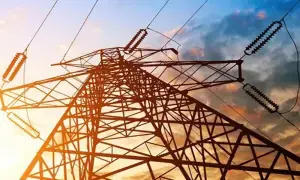Oil climbs on supply jitters as EU lays out Russian oil ban
3 min read-
France expects EU consensus on Russian oil ban by end of week
-
OPEC+ set to stick to modest oil output rises amid price rally
-
Rising oil prices buy Iran time in nuclear talks, officials say
LONDON: Oil prices extended gains on Thursday on supply concerns after the European Union laid out plans for new sanctions against Russia, including an embargo on crude in six months, offsetting concerns over weaker Chinese demand.
Brent was up 36 cents, or 0.3%, at $110.50 a barrel by 0825 GMT, and U.S. West Texas Intermediate crude rose 11 cents, or 0.1%, to $107.92 a barrel.
Both benchmarks gained more than $5 a barrel on Wednesday.
The sanctions proposal, which needs unanimous backing by the 27 EU countries, also includes phasing out imports of Russian refined products by the end of 2022, and a ban on all shipping and insurance services for the transportation of Russian oil.
“The oil market has not fully priced in the potential of an EU oil embargo, so higher crude prices are to be expected in the summer months if it’s voted into law,” said Rystad Energy’s head of oil markets research, Bjørnar Tonhaugen.
The French environment and energy minister, Barbara Pompili, said she was confident European Union member states will reach a consensus on sanctions by the end of this week.
“The planned EU oil embargo represents a massive logistical challenge for oil markets,” said Investec’s head of commodities, Callum Macpherson.
“Re-routing Russian output from Europe to willing buyers in Asia, in the presence of sanctions, is already so challenging that even Russia has admitted its production will decline significantly,” he added.
Meanwhile, in its meeting on Thursday, the Organization of the Petroleum Exporting Countries and allied producers, known as OPEC+, will likely stick to modest oil output increases arguing it is not responsible for geopolitics and supply disruptions.
OPEC Secretary General Mohammad Barkindo reiterated it was not possible for other producers to replace Russian supply, but expressed concerns about slowing demand for transportation fuels and petrochemicals in the world’s top importer, China, because of prolonged COVID-19 lockdowns.
A private-sector survey on Thursday showed China’s services sector activity contracted at the second-steepest rate on record in April under the effect of pandemic measures.
In Iran, surging oil prices have given its energy-reliant economy a breather and hence its clerical rulers are in no rush to revive a 2015 nuclear pact with world powers to ease sanctions, three officials familiar with Tehran’s thinking said.
In the United States, crude stocks were up 1.2 million barrels last week after more oil was released from strategic reserves, according to the Energy Information Administration. (Reporting by Bozorgmehr Sharafedin in London, additional reporting by Florence Tan in Singapore and Stephanie Kelly in New York; Editing by Richard Pullin, Bradley Perrett, Lincoln Feast and Kim Coghill)
For the latest news, follow us on Twitter @Aaj_Urdu. We are also on Facebook, Instagram and YouTube.


























Comments are closed on this story.